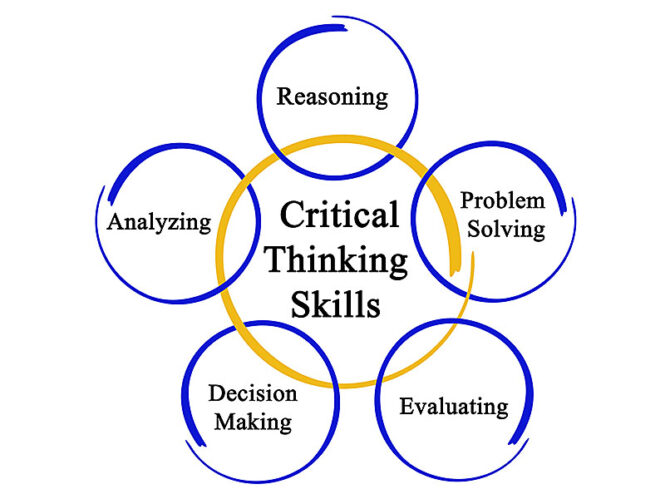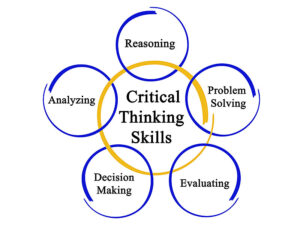
Introduction
We Christ-followers are constantly bombarded by hostile narratives. They are proclaimed by those trying to sway public opinion in support of their theological and/or political ideologies. Their positions are often presented with a total disregard for rational thought and/or reality and/or biblical morality. Regardless of how altruistically their agendas are portrayed, the consistent sticking point is frequently:
- Their inaccurate and/or fraudulent diagnoses of why certain problems exist, accompanied by;
- An ineffective and usually dishonest remedy almost always presented as “The Solution.”
Because such faulty assessments/agendas are either rooted in secular humanism and/or inaccurate interpretations of Scripture, they ultimately serve demonic ends.
Students of history call it like it is: propaganda.
- propaganda
- information, especially of a biased or misleading nature, used to promote or publicize a particular political cause or point of view
The only effective tool available to detect and/or oppose propaganda is applied logic aka “critical thinking.”
Tragically, Christendom (the organized expression of Christianity in the earth) is certainly no better off than pop culture when it comes to clear-headed, rational thinking and unbiased analysis.
- Many believers pride themselves on their grasp of doctrinal knowledge and spiritual discernment. However far more often than not, they are just as biased, ignorant, and oblivious to their own fallacious thinking as those they oppose internally and externally.
- Others are so colossally ignorant of the Scriptures it beggars the imagination!
- Some are proudly anti-intellectual, making silly statements like, “I don’t have to think. I have faith in Jesus!” or a common variant among Pentecostals/charismatics: “I don’t need that. I have the Holy Spirit!”
Another problem with loudly and continuously proclaimed false narratives is they muddy the waters of public discussion concerning any given topic, Christian or secular. This influences those untrained in critical thinking to buy into theological and political claptrap harmful to themselves and others. Case-in-point: several well-known pastors and worship leaders have recently fallen away from the faith (aka “deconversion”). Why? Because the pervasive and persuasive arguments presented by pop culture have deceived them into rejecting the Bible as their sole authority over faith and practice.
Am I stating we all should study logic at the university level (assuming you can still find a school of so-called higher learning still teaching it properly)?
Not at all!
What I am saying is we as Christ-followers need to be familiar enough with the principles involved so we can detect and oppose the fraudulent concepts presented to us — not to mention those resident in our own thought processes! — so we will not be deceived into thinking and behaving in ways the Lord does not — and cannot — condone and reward.So this series is not intended to be some highfalutin presentation of philosophy, but an easily accessible rubber-meets-the-road explanation so we can both learn and practically apply them.
Truth & Objective Reality
First, let’s define some terms so we’re all on the same page. Precise definitions are supremely important because imprecise and/or corrupted ones are a prime tool used by propagandists to deceive the unwary.
- truth
- that which is in accordance with fact or reality
- objective
- not influenced by personal feelings or opinions in considering and representing facts
- reality
- the world or the state of things as they actually exist, as opposed to an idealistic or notional idea of them
Objective reality is almost a repetitively redundant term.
- Reality is always objective because it is based entirely upon unvarnished facts completely divorced from any and all human opinions — it simply is.
- Truths, on the other hand, are how reality is described and expressed in our interpersonal communications.
Various folks have weighed in on this topic in humorous ways:
Reality is that which, when you stop believing in it, doesn’t go away. Phillip K. Dick, science-fiction author
Reality is merely an illusion, albeit a very persistent one. Albert Einstein, renowned mathematician & physicistThe difference between fiction and reality? Fiction has to make sense! Tom Clancy, techno-thriller fiction author
My favorite quote concerning truth is one I’ve cited elsewhere here at Miscellaneous Ramblings, but it certainly bears repeating here:
The truth is incontrovertible. Panic may resent it, ignorance may deride it, malice may distort it, but there it is!Sir Winston Churchill, renowned British statesman
Biblical Truth
According to the Scriptures, the Person of Jesus Christ and the books found in both testaments of the Protestant Bible are Truth with a capital “T,” meaning what we find in Him and within that library, respectively, are ultimate truth, the supreme expression and description of reality. Point of fact, the Bible describes reality far, far more accurately and comprehensively than all other writings upon which all the other major world religions and philosophies are based put together — nothing else even comes close!
So we can safely conclude from all this that anything which is not real is a lie. The Bible is exceedingly clear about the following:
- No falsehood is to be found anywhere within the Godhead, and;
- The actual father and propagator of lies is the psychopath ruler of this world system, Satan himself. He leverages all the tools we will be discussing in the next two articles in this series: cognitive biases and logical fallacies.
Thanks for reading!


